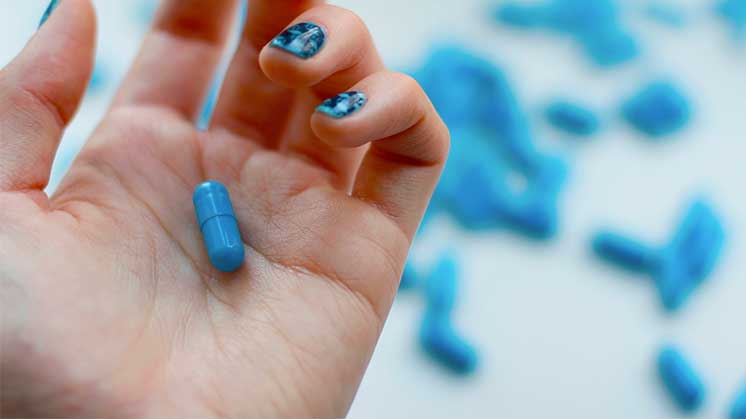Butalbital | Uses, Effects, & Abuse Potential
Butalbital is a barbiturate and central nervous system (CNS) depressant. Like all barbiturates, it is highly addictive and should only be taken under direct medical supervision when other treatments have failed.

Butalbital is a barbiturate and central nervous system (CNS) depressant that works on the brain to help with relaxation and is used as an analgesic pain reliever and a sedative.
This prescription drug is used in combination with other medications like acetaminophen and caffeine. That combination is found under the brand name Fioricet and is used to relieve pain caused by tension headaches and migraine headaches.
Unfortunately, butalbital and Fioricet do have the potential to lead to addiction.
The risks are low if the drug is taken as directed. However, if it’s misused and abused, it can produce a “high” feeling which can lead people to take more and more. From there, you can develop a tolerance that can turn into dependence and addiction.
Butalbital Uses
Butalbital is often used in combination with other medications, such as acetaminophen, caffeine, aspirin, and codeine for the treatment of tension headaches and migraines.
Butalbital is a central nervous system depressant that increases the production of the neurotransmitter GABA and relaxes muscle tension in the head.
Some of the brand-name drugs that use butalbital in combination with other drugs include:
- Axocet
- Dolgic Plus
- Esgic
- Esgic Plus
- Ezol
- Fioricet
- Fiorinal
- Margesic
- Medigesic
- Orbivan
- Phrenilin Forte
- Zebutal
Butalbital is often combined with acetaminophen and caffeine to treat headaches because the acetaminophen works to alleviate pain and reduce fever and the caffeine is a stimulant that raises blood pressure. Low blood pressure can cause headaches so raising it can relieve a headache.
Effects Of Butalbital
Like most medications, butalbital has side effects. These side effects can range from mild or moderate to severe. The higher the dose, the more likely you are to feel intense and serious effects.
Some of the most common side effects of butalbital may include:
- feeling relaxed
- euphoria
- decreases in reaction time
- impaired motor coordination
- slowed thought processes
- dizziness
- lightheadedness
- feelings of lethargy
- drowsiness
- nausea and vomiting
- stomach pain
- shortness of breath or respiratory depression
- anxiety
- tremors
- trouble sleeping
- constipation
- sedation
Rare side effects are also possible and can include rash, itching, problems with breathing, dry mouth, difficulty swallowing, gas, heartburn, severe fatigue, black tarry stools, and leg pain. If you experience any of these issues, call your healthcare provider as soon as possible.
Drug Interactions
There are several medications that don’t mix well with butalbital. When combined, they can lead to adverse reactions that can be life-threatening.
Some of the drugs that shouldn’t be taken with butalbital include:
- anticoagulants like warfarin
- antidepressants
- antihistamines
- benzodiazepines
- opioid pain medications
- other barbiturates like phenobarbital
- sedatives
- muscle relaxants
- monoamine oxidase inhibitors (MAOIs)
- tranquilizers
- over-the-counter vitamins and supplements
Contraindications
There are also a few medical conditions that don’t work well with butalbital. The drug can make disorders like porphyria (an enzyme disorder), liver disease, and depression worse.
Breastfeeding while on butalbital is also not recommended as the drug can pass into the breast milk and lead to symptoms like drowsiness, slow heartbeat, and troubled breathing in nursing babies.
Butalbital Abuse Potential
Butalbital is classified as a Schedule III controlled substance by the FDA and DEA. This means the drug has a moderate potential for abuse and can lead to physical dependence and addiction.
If misused or abused, butalbital can also lead to tolerance pretty quickly. This means that you need to take more and more of the drug to feel the same effects you once did, which can lead to habit-forming behaviors and increase the risk of addiction.
Signs Of Butalbital Addiction
If you’re worried that a loved one is struggling with butalbital abuse or addiction, there are a few signs you can look out for, including:
- using the drug more often or in higher doses than specified by the prescription
- doctor shopping to obtain more of the drug
- spending significant amounts of time trying to obtain the drug, using the drug, or recovering from drug use
- spending significant periods of time alone or with other individuals who are known for substance abuse
- defensiveness or anger when someone attempts to discuss their use of drugs
- unable to take care of responsibilities at work, school, or at home
Butalbital Withdrawal Symptoms
If you have abused or taken high doses of butalbital or a combination drug and built up a dependence on it, when you stop taking it, you’ll likely experience withdrawal symptoms.
These symptoms can be serious and even life-threatening if you don’t seek medical help from your healthcare provider or another medical professional.
Butalbital withdrawal symptoms can include:
- anxiety
- dizziness
- insomnia
- muscle spasms
- nausea and vomiting
- rapid emotional changes
- weakness
- seizure
- psychosis
- tremors
- restlessness
Find Addiction Treatment In Ohio
If you or a loved one are struggling with barbiturate abuse or addiction, we can help. To learn about our evidence-based inpatient treatment options, please contact us today.
- Case Reports in Psychiatry https://www.ncbi.nlm.nih.gov/pmc/articles/PMC8592771/#:~:text=Introduced%20in%20the%201970s%2C%20butalbital,%2C%20addiction%2C%20and%20severe%20withdrawal.
- National Library of Medicine: LactMed https://www.ncbi.nlm.nih.gov/books/NBK501481/
- National Library of Medicine: MedlinePlus https://medlineplus.gov/druginfo/meds/a601009.html

